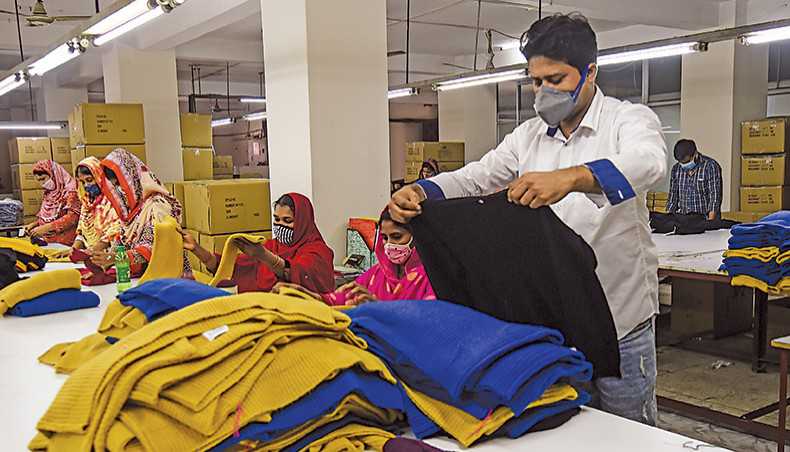97.1pc female personnel in low-paid jobs: ILO study

Image collected
Most female workers in Bangladesh’s readymade garment sector are concentrated in low paid jobs and the participation of women in managerial positions has not improved in the sector, said a recently available report of the International Labour Organisation.
The study titled ‘Understanding the Gender Composition and Connection with Ready-Made Garment (RMG) Workers in Bangladesh’ discovered that the jobs of 97.1 per cent of women staff were concentrated in low wage grade compared to 80.8 per cent of men workers.
There are seven wage grades in the production section in the RMG sector and grade 1 may be the highest paid while grade 7 is the lowest.
The report revealed that there were more men than ladies in more impressive range positions (grades 1 and 2) in the production section, and a lot more women than men in lower level positions (grades 3 to 7).
‘While 83.8 % of women personnel surveyed are used in grades 4 to 7, that is true for only 67.7 per cent of male workers,’ the report said.
The report also showed the low representation of ladies in managerial and leadership positions saying that Bangladesh cannot improve in the region.
The report recognized no improvements in boosting women’s representation in managerial and leadership positions in the RMG sector previously decade.
Citing a written report of Better Work, ILO said that men held 95 % of the line supervisor positions.
The perceptions of people respondents reveal gender-based stereotypes, discrimination and norms that affect workers’ leadership roles, the report said.
‘When asked why women “aren't thinking about becoming supervisors”, the “intense workload” involved was highlighted by 67.7 per cent of women respondents and 51.4 % of men. Roughly 40 % of respondents suggested that women “usually do not feel qualified” for these roles,’ the report read.
It said that 89 % of women and 87 per cent of men survey respondents believed that ‘men can work faster’ than women, and men’s ‘output is greater’ than that of women.
In line with the study, 73.7 per cent women respondents than 63.6 % men remarked that men could work at night, while a larger proportion of male respondents noted that men didn't face security problems when working or returning home late.
The report showed that 61.7 % of males and females workers experienced harassment at the job from their supervisors or line managers while 1.6 per cent of female employees faced sexual harassment.
The analysis said that work in the RMG sector was extremely physically stressful & most women workers didn't want to continue employed in the sector until they reached the regular age of retirement.
Over 70 % of all staff surveyed by the analysis were 29 years old or younger.
It showed that 25 % of male and female employees left jobs because of violence or harassment at the workplace while 26.5 % for work stress.
Pregnant workers face extreme challenges, and are often pressured into quitting their jobs, the analysis found.
It also discovered that the proportion of women employees in the RMG sector declined to 60.5 % of total personnel in 2018 from 63.4 per cent this year 2010. The ILO programme on Improving Working Conditions in the Ready-Made Garment Sector in Bangladesh Phase II, in collaboration with the UN Women Bangladesh, commissioned the analysis in 2017 while field data collection was undertaken in 2018.
Source: https://www.newagebd.net
Previous Story
- An expansionary monetary policy or nothing
- New law more likely to cut Bangladeshi jobs...
- Outcomes of 38th BCS exams out: 2,204 to...
- Steps had a need to develop skills for...
- Bangladesh to consider easing age restrictions for jobs...
- Rohas Tecnic bags power line jobs worthwhile RM192m...
- CSE, IT graduates getting more jobs
- Economic Slowdown: Tirupur Garment Industry Gasps for Survival